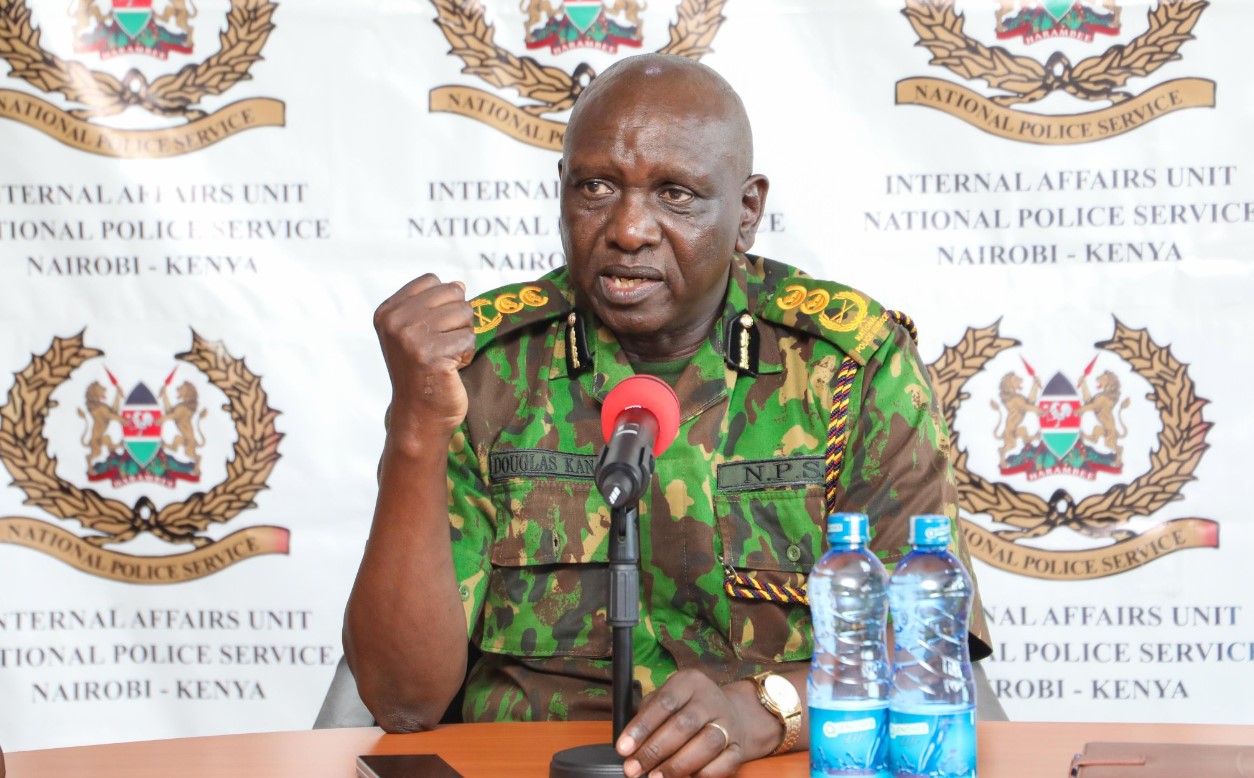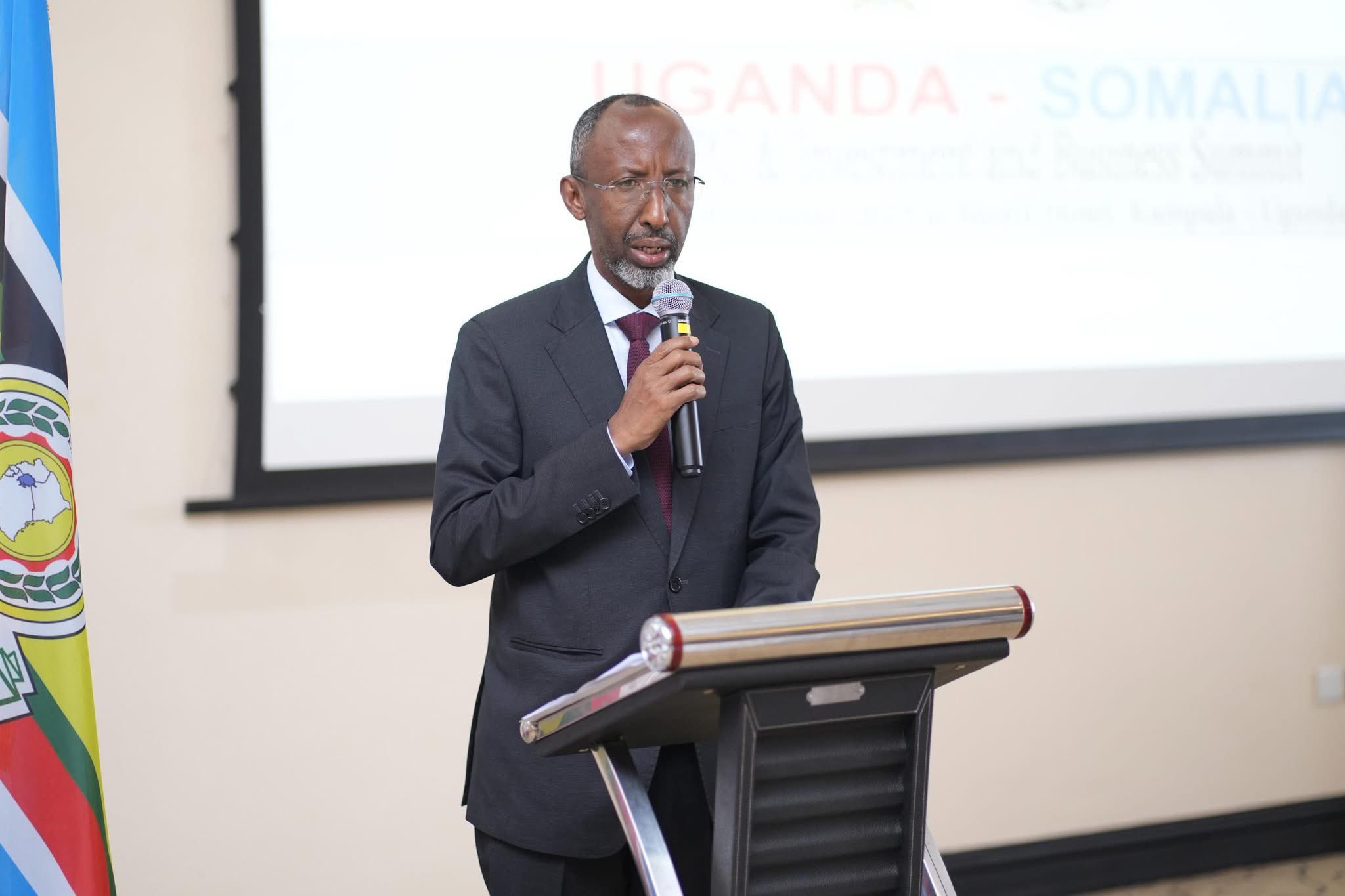How police used CCTV footage to arrest people involved in June protests

Kanja called for funding to enhance CCTV installation along major roads to curb crime.
The National Police Service has confirmed that it used CCTV images to track down persons involved in the June protests, with a disclaimer that they were targeting those involved in criminal activities.
This is according to a report tabled before the Parliamentary Departmental Committee on Administration and National Security by a delegation led by the Inspector General of Police Douglas Kanja.
More To Read
- UN Rights Chief raises alarm over abductions, enforced disappearances in Uganda ahead of elections
- Wajir MCAs demand answers over rising abductions after two men vanish
- Court gives IG of Police seven days to file report on disappearance of Mwenda Mbijiwe
- Kenyan activists Bob Njagi, Nicholas Oyoo to sue Uganda in regional court over abduction
- Court told six KWS rangers abducted missing fisherman Brian Odhiambo
- Maraga demands Kenya summon Ugandan envoy over missing activists Bob Njagi, Nicholas Oyoo
On Thursday, Kanja responded to questions over the spate of abductions witnessed in the country since then.
The report states that, in order to restore public order and security, NPS officers responded "swiftly" to disperse the rowdy crowds.
"However, during the police operations, 42 fatal injuries to civilians, 347 injuries to civilians and 495 injuries to police officers were reported. At least 1,552 protesters were arrested and others captured by cameras committing offences were being pursued," the report stated.
According to the police, this operation is what led to public outcry and "propaganda" that police were engaged in abductions and kidnappings.
"The police were just performing their duties of investigating crimes committed in the name of demonstrations betraying those captured by CCTV committing crimes," the report said.
The assertions by the police are similar to those made by human rights organisations, including the Human Rights Watch, which in its latest report on the protests said police used CCTV footage to track down "innocent protesters" who were then "intimidated" by way of prosecution in what it termed as renewed efforts by security agencies to criminalise protests in the country.
The report, however, added that, after the arrests, some were released after they were found innocent.
"After preliminary police investigations into the reports, it was found that some of the cases were genuine and others were unverified since majority of the youth had gone into hiding to evade police crackdown."
"Equally, some reported cases of abductions and kidnappings were lawfully in police custody while other reports were based on unconfirmed information of the unknown whereabouts of their kin by family members," the report added.
The service has made it clear that, its records point to 57 cases of abductions or missing persons since June 2024, a number that almost tallies to that released by human rights groups over the past few months.
IG Kanja told the committee that his officers were not involved in the abductions.
"I've made it clear; police don't abduct or kidnap. We detain (people) and keep (them) inside stations whereby investigations commence. Those found to meet the threshold of being taken to the court are arraigned while those who don't are set free," Kanja said.
Of the 57 reported missing, the police boss said 22 have since been found alive, 28 are still missing and six have been found dead.
They include Wajir MCA Yusuf Hussein Ahmed who is still missing.
"So far, after the report was made, we have carried out our investigations and it remains active. We have not gotten additional information of his (Hussein's) whereabouts. We are still appealing to the members of the public with information that can assist us to come forward," Kanja said.
Other cases still under investigation include the abduction and murder of Amina Abdirashid, her daughter and niece.
Kanja called for funding to enhance CCTV installation along major roads to curb crime.
Top Stories Today












































